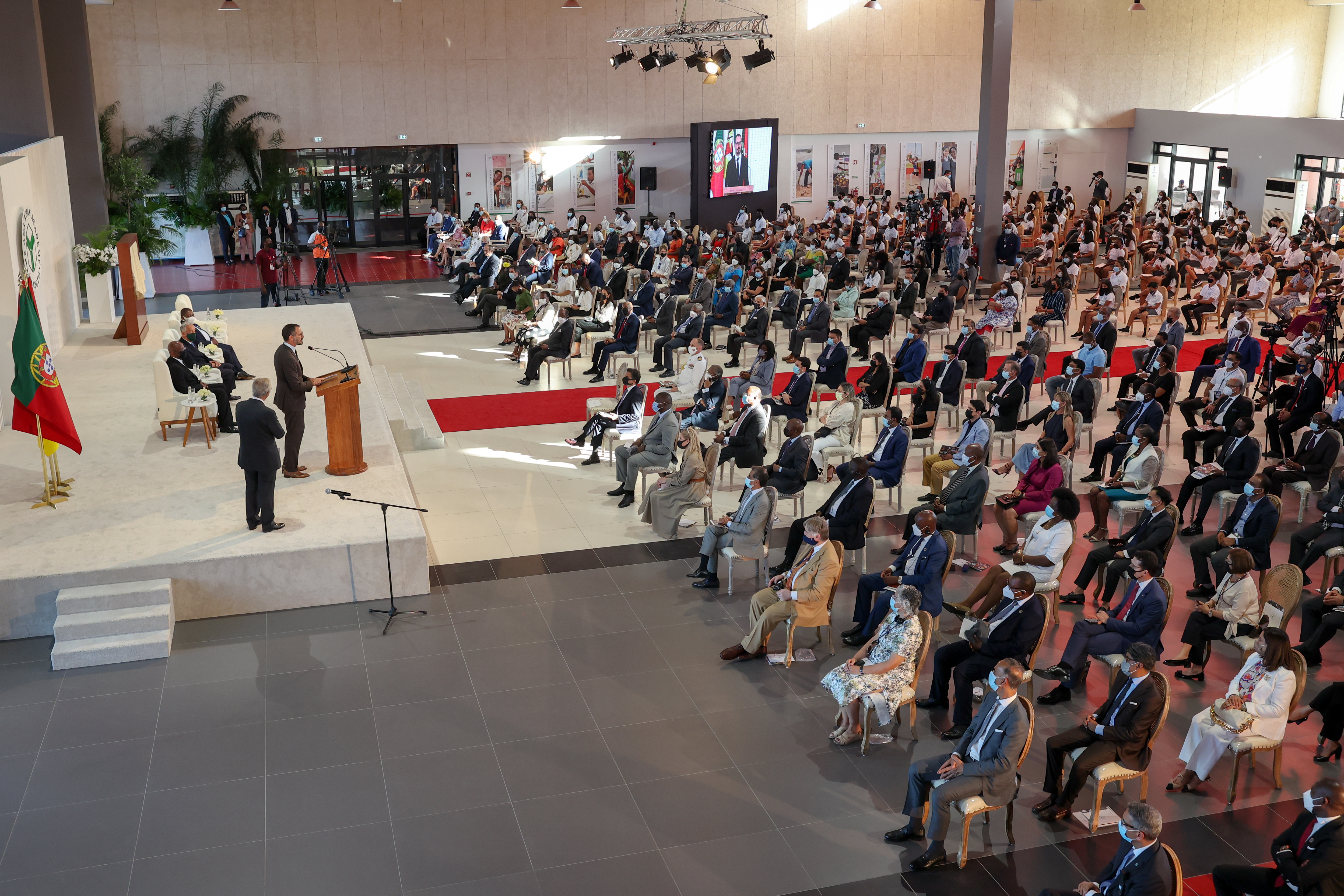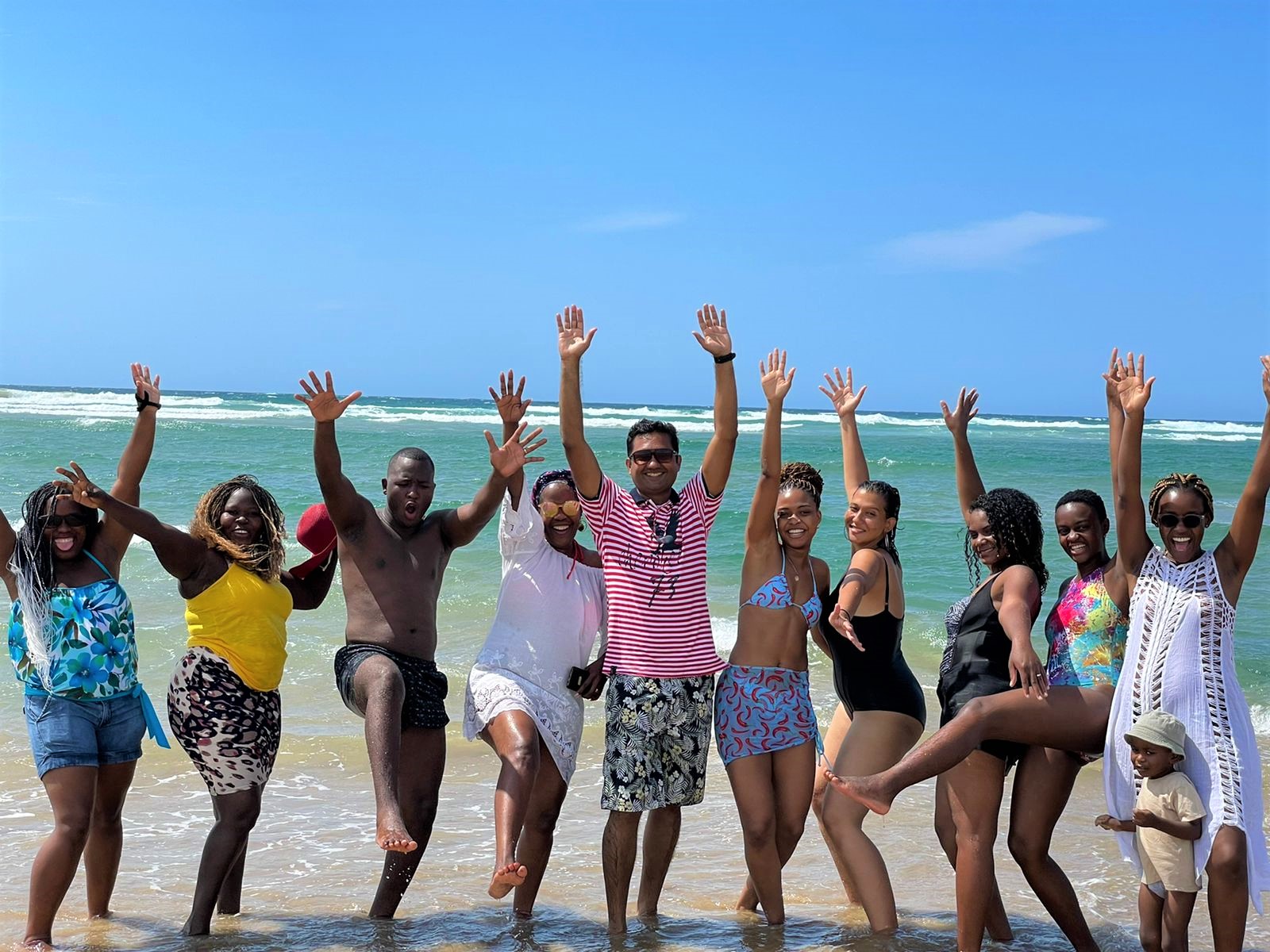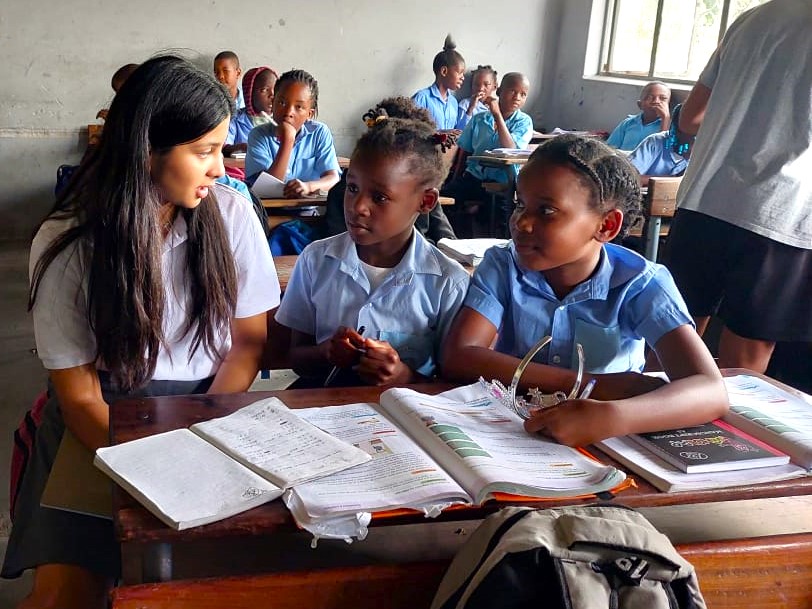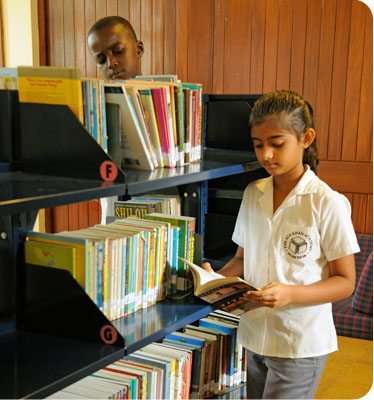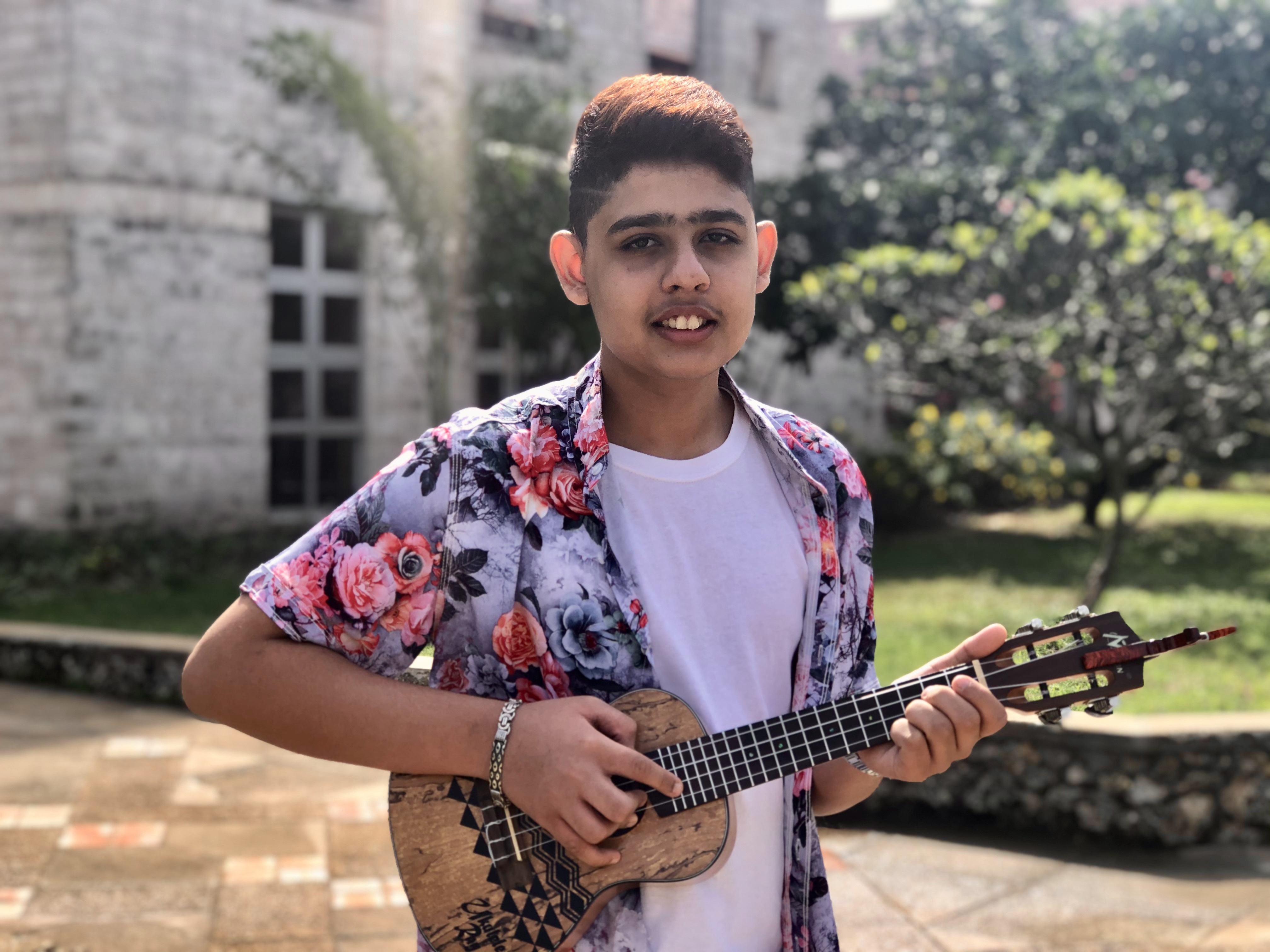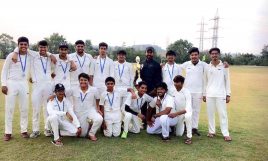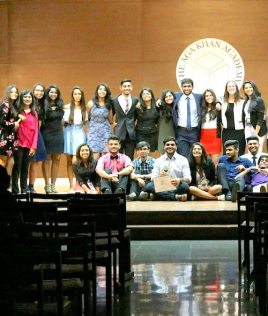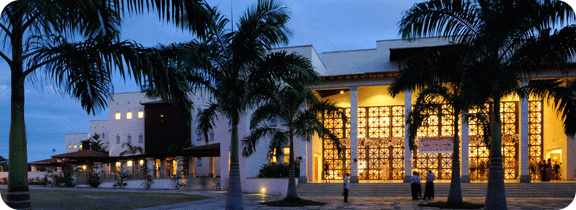
History
In 2000, His Highness the Aga Khan initiated a programme to establish an integrated network of schools, known as Aga Khan Academies. The aim of the Academies is to provide education to deserving students at an international standard of excellence.
The Aga Khan Academies are part of the Aga Khan Development Network (AKDN), which has been involved in education in developing countries for decades. AKDN agencies currently run more than 240 schools and educational programmes ranging from early childhood through to post-graduate education.
Establishment of the Aga Khan Academy Mombasa
In 2003, the first of the Aga Khan Academies was established in the Kizingo area of Mombasa, Kenya. The Aga Khan Academy Mombasa is a state-of-the-art learning institution recognised as an International Baccalaureate World School.
The campus design was inspired by Swahili architecture. Our campus sits on an 18-acre piece of land that includes a residential facility, a sports complex, classrooms, resources areas and common areas.
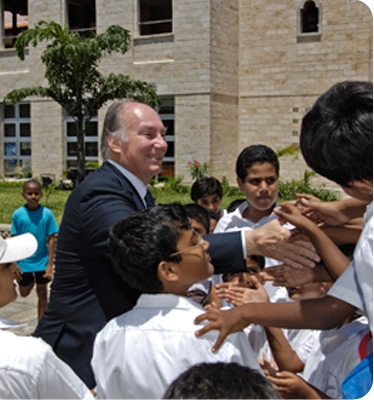 The Academy was inaugurated in 2003 as a day school by His Excellency Mwai Kibaki, the President of Kenya, in the presence of His Highness the Aga Khan. The residential programme officially began in April 2009.
The Academy was inaugurated in 2003 as a day school by His Excellency Mwai Kibaki, the President of Kenya, in the presence of His Highness the Aga Khan. The residential programme officially began in April 2009.
His Highness the Aga Khan visits the Academy in Mombasa
We pride ourselves on having a multicultural student body, which excels not only in academic pursuits, but also in sports, cultural activities and community initiatives. Our programme has already proved successful, with our students achieving strong academic results. In 2007, we saw our first International Baccalaureate Diploma graduates obtain acceptance as well as scholarships from top post-secondary institutions worldwide.
The Academies network
The Aga Khan Academy Mombasa will be part of a network of approximately 18 planned Aga Khan Academies that will form an interconnected learning community.
The Aga Khan Academy Hyderabad, India was the second to open in 2011, and the third opened in 2013 in Maputo, Mozambique. Others are at various stages of planning and development (map).
The work of the Academies is also enhanced through partnerships with other international educational institutions. These include the International Baccalaureate network, the Aga Khan University, the University of Central Asia and other agencies of the Aga Khan Development Network.
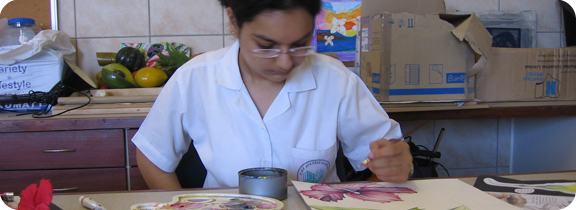
International Baccalaureate
The International Baccalaureate (IB) is a non-profit educational foundation, motivated by its mission to create a better world through education. IB programmes for students aged 3-19 help develop their intellectual, personal, emotional and social skills to live, learn and work in a rapidly globalising world.
Following in the footsteps of its sister schools in Mombasa, Hyderabad and Maputo, the Aga Khan Academy Dhaka plans to become an IB World School, subject to the necessary authorisations.
IB World Schools share a common philosophy – a commitment to improve the teaching and learning of a diverse and inclusive community of students by delivering challenging, high-quality programmes of international education that share a powerful vision.
Aims of the IB programme
Founded in 1968, the International Baccalaureate currently works with schools in 144 countries to develop and offer their programmes to over one million students.
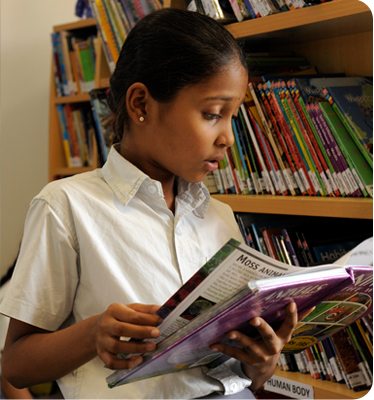 The IB mission statement declares:
The IB mission statement declares:
"The International Baccalaureate aims to develop inquiring, knowledgeable and caring young people who help to create a better and more peaceful world through intercultural understanding and respect. To this end the organisation works with schools, governments and international organisations to develop challenging programmes of international education and rigorous assessment. These programmes encourage students across the world to become active, compassionate and lifelong learners who understand that other people, with their differences, can also be right."
For further information about the International Baccalaureate and its programmes, please visit the IB website.
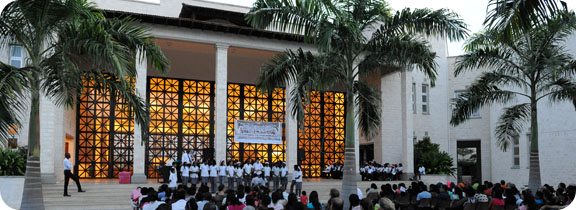
History
In 2000, His Highness the Aga Khan initiated the establishment of the Aga Khan Academies, an integrated network of schools dedicated to expanding access to the highest standard of education.
The Aga Khan Academies is an agency of the Aga Khan Development Network (AKDN), which is chaired by His Highness the Aga Khan. The AKDN has a long history of involvement in education in countries of the developing world, with the first schools now under the AKDN umbrella having been founded in 1905 in India and Zanzibar. Currently, AKDN agencies operate more than 240 schools and educational programmes ranging from early childhood through to post-graduate education.
Establishment of the academies
In 2003, the first of Aga Khan Academy opened in Kenya on an 18-acre site in the Kizingo area of Mombasa. The Aga Khan Academy (AKA) Mombasa has already established a highly successful track record, with its students placing among the top tier worldwide in academic performance.
The Aga Khan Academy Hyderabad is the second to be established and opened with its first intake of students in August 2011. As with all the Aga Khan Academies, AKA Hyderabad selects students of all socio-economic backgrounds who show promise in academic and other areas, and who demonstrate good character and serious intent.
A third Aga Khan Academy, in Maputo, Mozambique, opened in August 2013 with its lower primary school. In 2022, the Aga Khan Academy Dhaka in Bangladesh opened.
Future academies
The other Academies are at different stages in the planning and development process.
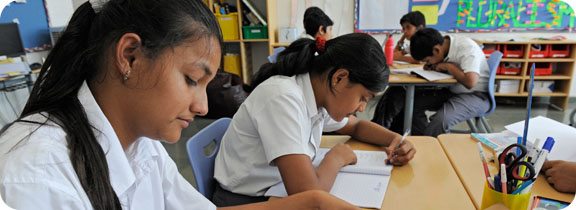
Admissions
The network of Aga Khan Academies has been established to provide exceptional students from all backgrounds with an outstanding education. Admissions are currently being accepted for the Primary Years Programme, Middle Years Programme and Diploma Programme at all Academies.
The Academy seeks students from pre-primary through higher secondary levels representing a diverse range of economic, cultural, ethnic and religious backgrounds. Students should have the ability and motivation to excel academically and should demonstrate leadership in community service and other co-curricular pursuits.
Selection is based on student merit.
The Academy endeavours to meet the demonstrated financial need of each admitted student.
Candidate characteristics
The admissions committee evaluates candidates based on a range of measures and selects those demonstrating a high level of motivation and commitment to learning, a strong sense of integrity and respect for others from diverse backgrounds.
Successful applicants typically demonstrate the following characteristics:
"The students at this institution will be distinguished not only for their academic capacity, but for their character and commitment to citizenship."
- a record of outstanding academic achievement or potential
- highly motivated and intellectually curious
- a strong sense of integrity – the capacity to judge right and wrong and to stand up for one’s principles
- a high level of social awareness, including openness and sensitivity to those of different backgrounds
- the desire to work towards, and instigate, positive change
- leadership in community service, student government and/or sporting activities
- notable accomplishments in the visual or performing arts.
Please visit the websites of the individual Academies for further information and application forms.
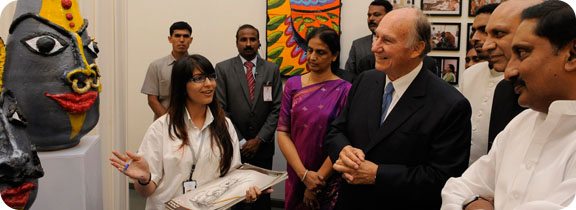
Vision
The outlook and educational perspectives of the Aga Khan Academies are based on the vision of His Highness the Aga Khan. His vision looks to education of the highest quality that can prepare young people to lead and enact positive change in the world they inhabit.
The text below, drawn from the Foreword to Excellence in Education (Aga Khan Academies, 2003), outlines the vision of His Highness for the Aga Khan Academies.
A time of change
"We live in a time of rapid change — change that is often unpredictable and not always positive. My experience with development, as an observer and a practitioner, has led me to the conclusion that the best way to manage change, whether positive or negative, is to prepare for it and that there is no greater form of preparation for change than investments in education. These investments must focus, of course, on teachers of the highest quality — teachers who are creative and committed to their own life-long learning and self-improvement. It also means investments in facilities that provide an environment conducive to the less tangible but equally important elements of an education — self-esteem, leadership, tolerance, ethical judgment and moral reasoning."
What does it mean to be educated?
“However, as educators and parents have begun to make these investments, they are revisiting the age-old question: What does it mean to be an educated person? Many have come to realise that education must prepare students not only for the job market, but also for life.
From Zanzibar's madrassas to Britain's public schools, from American university preparatory academies to government schools in Pakistan, there is a realisation that education must equip students with more than a narrowly focused curriculum based on reading, writing and mathematics. It must expose students to a broad and meaningful study of the humanities, including science, music and art. The teaching of history and world civilisations must be more broadly representative of the world's entire heritage than it has in the past. This is especially true in regard to Islamic civilisations, which have been misrepresented or ignored despite their vital contributions in a wide range of spheres, from science to architecture.
Education must include mastery of more than one language and an ability to communicate effectively in those languages. In the face of the most rapid advances in technology in history, education also must teach students how to master information technologies. These skills now form a critical part of the learning process, as well as essential qualifications for application in the workplace, but even these elements are not enough."
Preparing children for life
“An education must equip students with the tools that enable them to adapt and thrive, in a world characterised by change. In such an environment, technical proficiency is not enough. Education that prepares children for life must go beyond fundamental skills to stimulate creativity, intellectual curiosity and honest inquiry. Advancement and development, both personal and societal, are dependant on these elements. Innovation and progress arise from the ability to approach a challenge in a new way and offer a solution."
A pluralistic outlook
“Education must also make the case for a pluralistic tradition in which other views, ethnicities, religions and perspectives are valued not only because that is just and good, but also because pluralism is the climate best suited for creativity, curiosity and inquiry to thrive. It must also stimulate students to consider a variety of perspectives on some of the fundamental questions posed by the human condition: 'What is truth?' 'What is reality?' and 'What are my duties to my fellow man, to my country and to God?' At the same time, education must reinforce the foundations of identity in such a way as to reinvigorate and strengthen them so that they can withstand the shock of change."
The most important measure of an education
“What students know is therefore no longer the most important measure of an education. The true test is the ability of students and graduates to engage with what they do not know and to work out a solution. They must also be able to reach conclusions that constitute the basis for informed judgements. The ability to make judgements that are grounded in solid information and employ careful analysis, should be one of the most important goals for any educational endeavour. As students develop this capability, they can begin to grapple with the most important and difficult step: to learn to place such judgements in an ethical framework.
“For all these reasons, there is no better investment that individuals, parents and the nation can make than an investment in education of the highest possible quality. Such investments are reflected and endure, in the formation of the kind of social conscience that our world so desperately needs."
His Highness the Aga Khan
Access the biography of His Highness the Aga Khan on the Aga Khan Development Network website.
Ayaan Allarakhia: sharing his voice to inspire others
Since he was 4-years-old, Ayaan Allarakhia has had a passion for music that has shaped his whole life. Over the years, the 14-years-old Grade 9 student at the Aga Khan Academy in Mombasa, Kenya has developed and strengthened his musical and performance skills. Now, after writing and releasing his own song and music video, Ayaan is on a mission to spread his love for music to all.
Born and raised in Mombasa, Kenya, Ayaan, whose stage name is ‘Soul Prince’, sees music not only as a source of entertainment but as an essential part of everyone’s lives through different aspects. Ayaan especially admires the power music holds as it can strengthen relations amongst people and allow for an appreciation of various cultures.
“Music plays a vital role in my emotional, intellectual and physical life. It impacts the way I work, relax, behave and feel. Music also helps me bond with others in the sense that it helps me interact with other musicians around the world who share equivalent interests as me. Something I especially love about music is its power and how it can change the minds of millions if it’s addressed correctly in a rightful manner, and the power it has over one’s emotions.”
Gifted a toy piano by his parents for his fourth birthday, Ayaan has since continued and expanded his passion for music. Through the support of his teachers, classmates and school leadership at AKA Mombasa, Ayaan has performed at numerous school events, including a TEDx Talk at the Academy where he performed his original piece, I Take a Vow.
Ayaan said this support is also extended through the Academy’s music classes, resources and opportunities provided. Through this, he has been able to access different instruments and participate in music-related extracurricular activities and competitions, such as the Kenya Music Festival, in which he has won on numerous occasions. According to Ayaan, all of this has benefitted him as he progresses in the Academy’s International Baccalaureate (IB) programme and his school workload increases.
“The Academy has assisted me in many ways since I started music. Firstly, the Academy gave me a lot of different opportunities to perform at school assemblies and other events and share my ambition with others, which is to inspire the youth to participate in music activities. This also gave me the confidence I needed to express myself in front of large groups of people. And since managing my time and my school workload are some major challenges I face, I feel like my music career is still supported by the Academy offering music classes as a subject. Through this, I gain a lot of musical knowledge and learn about different music theories, which help me in understanding and building new tunes.”
Michael Lizotte, the Academy’s music director who joined this past August, said he has been able to sense Ayaan’s passion for music since the day he met him.
“When Ayaan first arrived in my Grade 9 music class, I remember hearing his lovely tenor voice and nice low range, which almost made me feel like I was listening to the famous singer, songwriter and musician Roy Orbison,” Michael said. “Ayaan is very inquisitive with anything about music, and we often meet to discuss styles, progressions, production and presentation. Ayaan really goes out well beyond classroom work and knows music will be part of his life’s work as he continues to study, learn and share.”
This was all just the beginning of Ayaan’s music career. In October 2020, as the COVID-19 pandemic was, and still is, impacting numerous lives and causing hardships in Kenya, Ayaan wrote and released his first-ever Swahili song called Unaweza, or ‘You can’. The song was accompanied by a music video as well, which has over 12,000 views on YouTube and was shot on the 18-acre campus of the Academy featuring teachers and students from the Academy.
“Because of the global pandemic, many people around the world are facing major problems socially, economically and mentally,” Ayaan said. “My target audience was the people in Kenya as a lot of people here were suffering economically and mentally. Therefore, I wanted people to know that this pandemic is just a passing cloud and to remind people that we can stay strong during this trying time.”
Since the release of Unaweza, Ayaan said he has received many positive responses, giving him the boost to pursue additional music projects and write more songs, which he said will be released soon. For his future, Ayaan hopes to continue broadening his music career and share his love for music with others.
“In the future, I hope to continue being a singer a songwriter, while also inspiring and encouraging people around the world to pursue music. My dream is to have everyone around the world engage with music, and share their emotions, culture and identity through music.”
Watch Ayaan’s music video for Unaweza below:
Kelvin Bagthariya: Generating positive change with resilience
Kelvin Bagthariya, a second-year Diploma student at the Aga Khan Academy Hyderabad, believes that his time at the Academy has taught him one thing in particular: resilience. Kelvin joined the Academy in year 9, and having come from a small town in Gujarat, it was a completely different environment. He believes the Academy has changed his mindset, teaching him to become independent, improving his self-esteem and allowing him to pursue his passion to make a change in his community.
“It was hard for me in the ninth grade as I grew up in a conservative society where people had closed mentalities and viewed life with confined perspectives – it was totally opposite when I came [to the Academy]. I was surrounded by people from diverse communities, with different perceptions and different approaches towards learning. Coming here to the Academy made me adapt to the pluralistic environment, helped me overcome new challenges and integrate [His Highness’s] vision towards my learning.”
For Kelvin, the attitude and assistance of the staff, teachers and his peers at the Academy were the reasons behind his resilience through this tough transition, especially in adjusting to a new way of learning and thinking. They were extremely encouraging towards Kelvin, which empowered him to take responsibility, get involved in enrichment activities and take on leadership roles.
“The journey has [inspired] many transformations in me since I joined. If I recall my first day [at the Academy], everything was new to me. I felt I wouldn’t be comfortable or accepted, and the first few months were lonely. But what the Academy has taught me is that you have to be independent. The Academy offers various opportunities from sports, service projects and various events. …Throughout my journey, being part of the school cricket team, participating and leading various service projects, being head of logistics in Model United Nations, summer internships, school trips and participating in cultural events has shaped me as an individual. It is very different from other schools. The journey wasn’t easy and couldn’t have been possible without my peers, teachers and assistance staff. After four years, if I look at myself, it is a proud moment for me.”
During his four years at the Academy, Kelvin has particularly enjoyed being part of the cricket team, Model United Nations, initiating the organic farming project at the Academy and doing a summer internship with the Aga Khan Foundation. Kelvin explains, “Enrichment activities give you a taste of real life and how it works.”
Through these enrichment activities and involvement in the community at the Academy, Kelvin was encouraged to contribute to the community in his hometown. “I am very passionate about bringing change in the society. When I see a problem, I want to make a change. I have the passion to be a leader and take responsibility. I always want to take initiative.”
Kelvin has taken initiative on an issue close to his heart and one of most pressing public health issues in his hometown: tobacco addiction. Kelvin lost a close friend to tobacco addiction, so he decided to partner with institutions in the Ismaili community such as the Aga Khan Education Board and the Aga Khan Youth and Sports Board to run a campaign to inform people about the consequences of addiction through a short movie that he scripted and acted in. He also created a youth group, worked with families struggling with addiction, visited schools and vulnerable areas, and organized health checkups. The project even received an award from the local government for its effort to mitigate tobacco addiction.
“I felt proud when 15-20 people came to me and said they are no longer addicted,” Kelvin shares.
Kelvin owes his enthusiasm to take initiative to the Academy, where he had always been motivated to do the same through his CAS and enrichment activities.
After graduating from the Academy, Kelvin wishes to pursue a degree in computer science in Canada. He hopes to use his education to work for the good of society, in particular for the Aga Khan Development Network and in the direction of His Highness the Aga Khan’s vision of improving the quality of life of people.
“His Highness says when you leave the Academy, you should be working for change in your own community. I have the responsibility as a global citizen to make a change””
By Inaara Gangji
